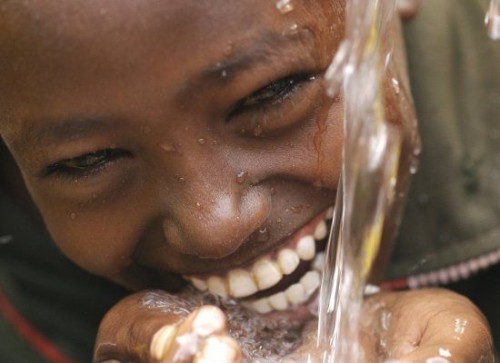 A total of 748 million people lack access to clean water on a regular basis in the world and an estimated 1.8 billion people are exposed to contaminated water, according to a report released Wednesday by the World Health Organization (WHO).
A total of 748 million people lack access to clean water on a regular basis in the world and an estimated 1.8 billion people are exposed to contaminated water, according to a report released Wednesday by the World Health Organization (WHO).
The report indicates that 2.5 billion people lack access to adequate sanitation, and one billion practise open defecation, or nine people out of 10 in rural areas.
These are the main conclusions of the report “GLASS 2014”, a study conducted every two years by WHO with this edition entitled “Investing in Water and Sanitation: Increasing Access, Reducing Inequalities”.
The report recalls that access to safe water and adequate sanitation has implications for a wide range of issues, including reducing infant mortality through maternal health, combating infectious diseases and reducing health and environmental costs.
The study shows that over the past two decades, 2.3 billion people gained access to improved drinking water sources.
In the same period the number of child deaths from diarrheal diseases — very much related to sanitation — decreased from 1.5 million in 1990 to 600,000 in 2012.
Maria Neira, director of the WHO Department of Public Health and the Environment, praised the improvement, but noted that the figure was still too large.
The study also estimates that every dollar invested in water and sanitation can provide a return of $4.30 in reducing healthcare costs, increasing productivity in the workplace and creating new jobs in industries related to waste management.
The study also emphasises the importance of focusing on sanitation, given that more than 75 percent of the funds are invested in providing access to drinking water.